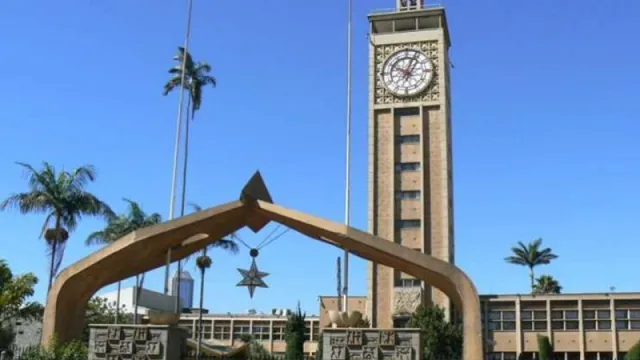Why Bill seeking to weaken Kenya's copyright law could hurt the economy

Why Bill seeking to weaken Kenya's copyright law could hurt the economy
A Bill that seeks to water down the provisions of the law on piracy in Kenya has drawn protests from a global anti-piracy organization warning that the country risks devastating economic consequences.
The Sports Rights Owner Coalition (SROC) has written to Kenyan MPs about the proposed repeal of sections 35 B, C, and D of the Copyright Act in amendments that are currently before Parliament.
SROC, which is an alliance of over 50 global and national sports bodies, said it is "extremely concerned" of the proposed changes as contained in the Copyright Amendment Bill that would effectively eliminate take-down notices.
In practice, take-down notices enable copyright holders and related rights owners to exercise control over their content besides giving them the ability to make content available to consumers on online platforms.
SROC brings together some of the world’s leading sports codes and competitions such as the English Premier League, the FA Cup, Wimbledon, MotoGP, and the Rugby World Cup.
The coalition warned Kenyan MPs that take-down notices are one of the few effective remedies against digital piracy available to rights holders at the moment and therefore their repeal will hand the pirates an undue advantage over content owners.
"They are particularly important for sports rights owners, where the ability to remove unauthorized content immediately is crucial in protecting the value of live sport," the letter signed by SROC Chairman Mark Lichtenstein explained.
The Kenya Copyright Board (KeCOBO), which has been spearheading the Partners Against Piracy initiative, has also thrown its support behind the SROC position.
Read also: The Showmax series that’s got tongues wagging
“Take-down notices are a critical tool for copyright holders and related rights holders to fight digital content piracy by controlling the distribution and economic viability of their work and how it is accessed online,” says KeCOBO Executive Director Edward Sigei.
“Across the world, they help to safeguard the intellectual property rights of sports rights owners. If rights owners cannot request that pirated sports content is taken down immediately, that will threaten the future of live sports broadcasts in Kenya. Why would international sports media allow sports broadcasts in Kenya, if they have no way of stopping them from being pirated.”
Interestingly, the proposed Bill in Kenya's Parliament moves contra to the latest legislation in other parts of the world where countries are tightening the noose on piracy by strengthening their Take-Down Notices.
According to the SROC, the European Parliament recently adopted fresh proposals that seek to protect live content more effectively starting this year.
If the proposed changes become law, Kenya risks devastating consequences on the economy as well as on its consumers because creative industries are extremely unlikely to license their content in a jurisdiction where piracy is legally allowed.
“Consumers would therefore be deprived from watching their favorite sports and television shows, and leave Kenya isolated on the global copyright stage,” SROC added.
Additionally, Kenya risks limping into a reputational and economic investment quagmire if the Bill turns into law it would jeopardize the country's ability to renew participation in the Africa Growth and Opportunity Agreement (AGOA) program.
One of the provisions of renewal of Agoa demands a demonstrated commitment to copyright protection as a prerequisite to signing the deal that revs up trade between Kenya and the US.
By repealing section 35 of the Copyright Act, Kenya would ruffle investor confidence at a time when property owners are getting jittery due to lax copyright rules.



